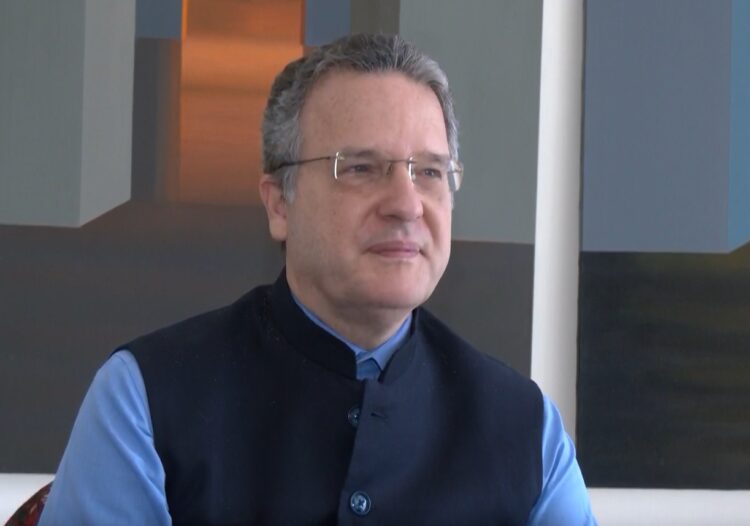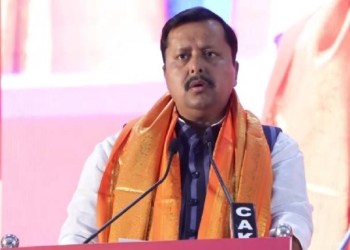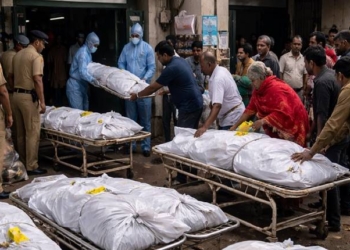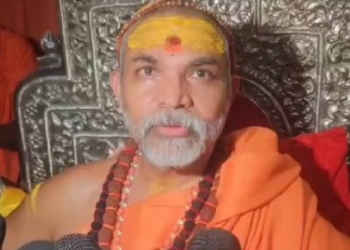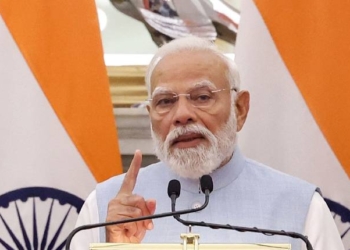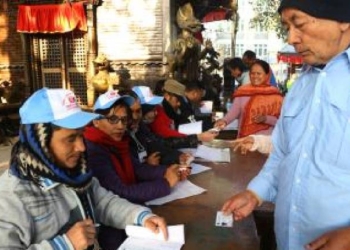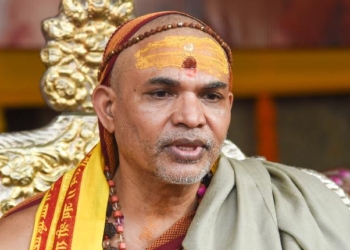New Delhi: In an exclusive interview to IANS, Brazil’s Ambassador to India, Kenneth Felix Haczynski da Nobrega sheds light on the country’s priorities ahead of next month’s BRICS Summit at the Museum of Modern Art in Rio de Janeiro.
As geopolitical tensions continue to rise and the grouping expands, the Ambassador discusses Brazil’s dual engagement with the G7, the evolving Middle East situation, the push for UN Security Council reforms, and the broader role of platforms like IBSA. He also shared his thoughts on Prime Minister Narendra Modi’s growing influence within BRICS and the outcomes expected from the upcoming summit.
Excerpts:
IANS: What have been the key priorities under Brazil’s BRICS leadership?
Kenneth Felix Haczynski da Nobrega: The Brazilian chairship prioritised six areas, including reform of global governance, climate change financing, global health, artificial intelligence, economy, and finance. These reflect our intention to push forward a reform in the way BRICS functions. That said, we must remember that BRICS remains an informal group, so one cannot speak of institutionalization in the strictest sense.
IANS: Brazil has been attending the G7 Summits as well. How do you see the significance of this dual participation in G7 and BRICS?
Kenneth Felix Haczynski da Nobrega: The G7’s outreach to Global South leaders isn’t new — it dates back to the early 2000s. It is not something novel but certainly a recognition that the G7 needs to engage with emerging powers to ensure its discussions are meaningful.
IANS: The BRICS Summit will be happening amid escalating tensions in the Middle East and one of the affected parties is a BRICS member. How will this be addressed?
Kenneth Felix Haczynski da Nobrega: That’s a very recent development, and as we speak, the situation on the ground is evolving. BRICS works by consensus — that is its golden standard. We trust that we will arrive at a formulation reflecting our collective reliance on international law and inclusive negotiations to find a formulation to be acceptable to all member countries.
IANS: Is a consensus within the BRICS possible on the issue of UN Security Council reforms, especially with new members bringing their own priorities?
Kenneth Felix Haczynski da Nobrega: Well, you know that the mutual support to the three original member countries of BRICs that are not part of the Security Council is considered key to BRICS. But, we are also cognizant on the other hand that new members also brought new interests to the table of discussion. So, I do not think this is really a stalemate in the sense that we are we against, the idea of other South countries, global South countries, of being permanent members of the Security Council. So, there is not really a veto on taking on board other countries when we discuss about the reforms of the UN Security Council. So, I think this is doable to find a consensus. We trust that this will be achieved.
IANS: Can you tell us about the participation of partner countries in the upcoming summit?
Kenneth Felix Haczynski da Nobrega: BRICS has a tradition of inviting outreach members and this year we are hosting established partner countries including Cuba, Bolivia, Nigeria, Uganda, Belarus, Vietnam, Malaysia, Thailand, Uzbekistan and Kazakhstan. All partner countries will be invited to participate in at least one dedicated session.
IANS: What would you consider the signature outcomes of this BRICS summit?
Kenneth Felix Haczynski da Nobrega: Apart from the traditional joint leaders’ statement, there will be two specific declarations — one on climate change financing and another on artificial intelligence governance. These dedicated declarations will really show that the enlarged BRICS group can hammer out meaningful, profound agreements on key global challenges. Of course, climate change has been selected because we are also holding the chairship of COP30 later this year. Brazil, when it comes to climate change, has been promoting an active discussion on it since at least the Indian G20 presidency and Brazil has also pushed forward a deeper discussion on climate financing — not just as a dimension, but as a central priority within BRICS.
IANS: Will other issues, such as terrorism, also be addressed despite the six main priorities?
Kenneth Felix Haczynski da Nobrega: Absolutely, the selection of six priorities doesn’t exclude other important and crucial issues like the fight against terrorism. Throughout the year, BRICS holds more than 100 meetings throughout the year, including a high-level National Security Advisors (NSA) meeting and there is also an anti-terrorism working group. This theme has also been tackled by the foreign ministers in their meeting. So, the fight against the scourge of terrorism is there, make no mistake.
IANS: An Indian parliamentary delegation recently visited Brazil, how successful was their trip?
Kenneth Felix Haczynski da Nobrega: It was fairly successful as they conveyed the message to the high authorities of the legislative and also had an exclusive, high-profile meeting with the Brazillian Vice President where all the Indian concerns regarding terrorism, particularly following the terrorist attack on April 22, were clearly conveyed. President Lula also personally called Prime Minister Modi to express his condolences. Brazil publicly condemned the attack in a press conference after the mission concluded.
IANS: What role do you see for IBSA in the broader Global South narrative?
Kenneth Felix Haczynski da Nobrega: IBSA — India, Brazil, and South Africa — brings together three of the largest democracies of the Global South. When such democracies talk among themselves, it’s a different kind of conversation. They share not only electoral systems but a democratic spirit — a way of life. That sets them apart from countries that have chosen other paths to development.
IANS: How would you assess Prime Minister Narendra Modi’s role on the global stage, especially in the context of BRICS?
Kenneth Felix Haczynski da Nobrega: Prime Minister Modi has consolidated BRICS leadership and earned global respect — not only in the Global South but worldwide. We see his contributions to BRICS discussions extremely valuable in terms of bringing authority and also reasonability to discussions within BRICS.
(IANS)




